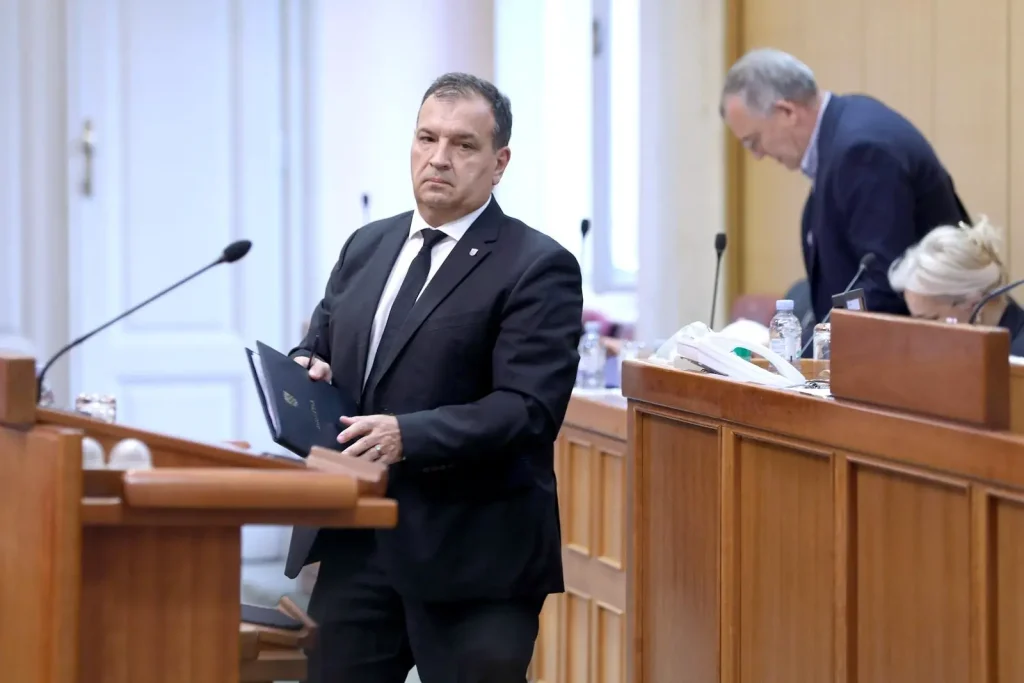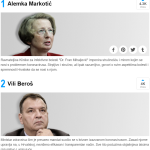As Index writes, while reporting to the parliament on the measures taken by Croatia against the covid-19 epidemic from January 1 to August 31, 2022, Beros pointed out that for the sixteenth day in a row, we have recorded a decrease in the number of newly infected people per day. The drop is significant and perhaps unexpected because the school year has already started, said Beroš, but he also warned that the epidemic is still around us and we must be careful.
He added that the majority of hospitalised patients are still completely unvaccinated citizens or vaccinated only with the primary vaccine, which indicates the need to increase the vaccination rate of citizens. He also presented the information that the Croatian Institute for Health Insurance paid almost six billion kuna from compulsory health insurance funds from the beginning of the epidemic until August 31.
“Although it is a large figure in financial terms, it is important to see that it cannot be considered a cost but an investment in the health and treatment of our citizens, which ultimately affects the performance of other sectors such as tourism and the economy,” said the minister.
State Secretary Marija Bubas referred to the problematic statements in the media about vaccination, which certain opposition parties support. “Protests by various interest groups with their destructive messages have not caused any political damage to the government, but they are certainly causing damage to our citizens, who are still weighing out if they want to get vaccinated,” she said.
To the opposition’s criticism that Croatia has failed in the fight against the epidemic with regard to the mortality rate, Beros replied that statistics should take into account the demographic picture of the population, comorbidity, and the percentage of vaccinated people, which is still insufficient. The representatives were also interested in how many vaccines were ordered, how many were used, and how much it all cost.
9.7 million doses were acquired, 5.3 million doses were used, 4.4 million doses were unused, of which 1.1 million were donated, and 426 thousand doses were destroyed having had expired, the minister stated. Vaccination against the coronavirus will become lifelong, that is, constant, and it is necessary to keep buying new doses, said Beros. He did not provide an answer about how much it cost, pointing out that the vaccine saves lives and that the price is not important in that context. “The government will pay for everything necessary to provide Croatian citizens with adequate medical care, including the vaccine, so I won’t tell you how much it costs; someone else will answer. We don’t pay for it from the system; it is procured through joint procurement by the European Commission,” he said.
The slogan should be changed from “get vaccinated, save others” to “get vaccinated, save the supplies,” proposed Zvane Brumnic (Social Democrats). Beros also rejected Miro Bulj’s (Most) claims that the Ministry of Health hides public purchases of medical equipment and vaccines like a snake its legs. “Everything is public and transparent, but there are elements such as the contract of the European Commission that do not allow us to communicate the price of the vaccine,” he said.
For more, make sure to check out our dedicated Lifestyle section.









